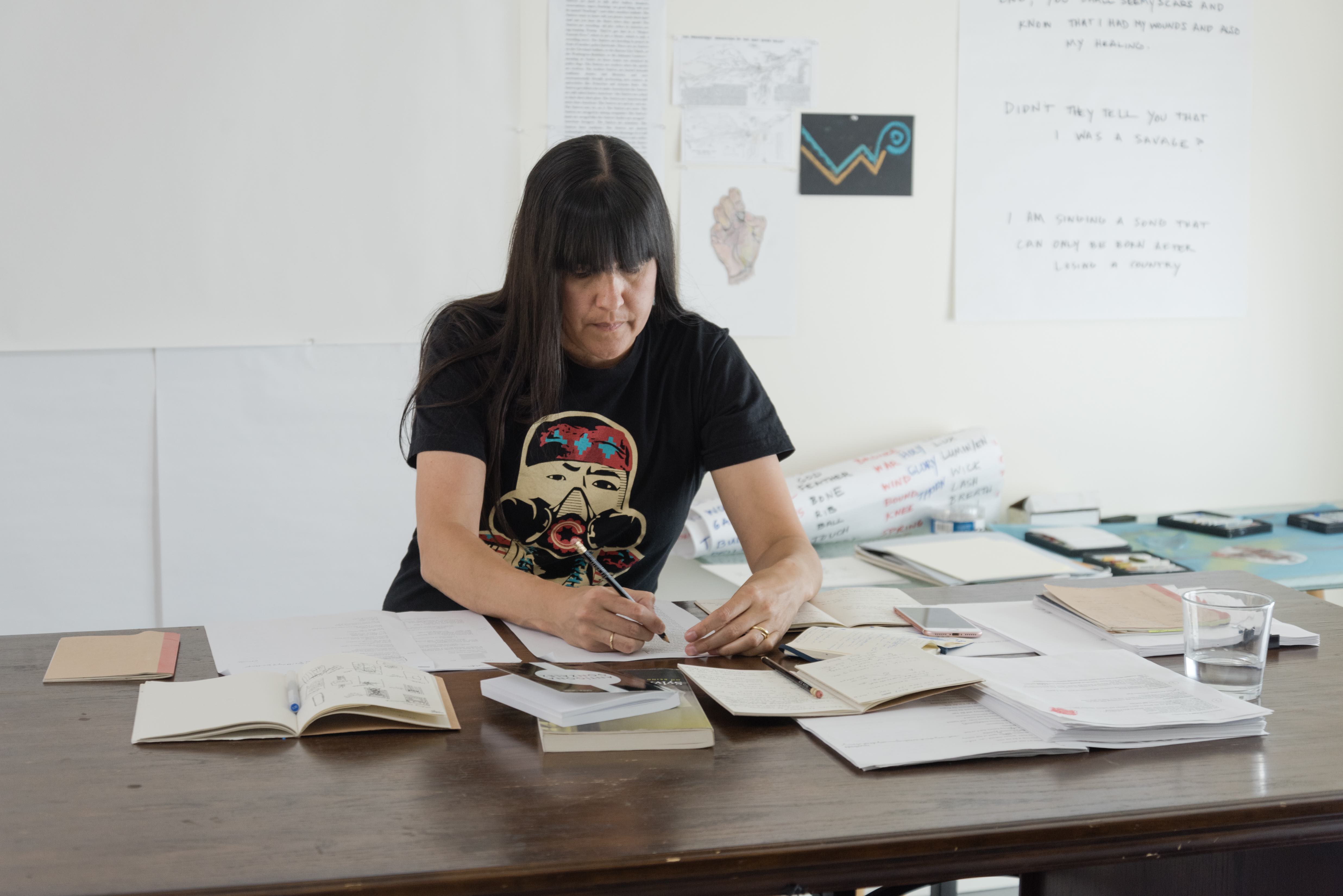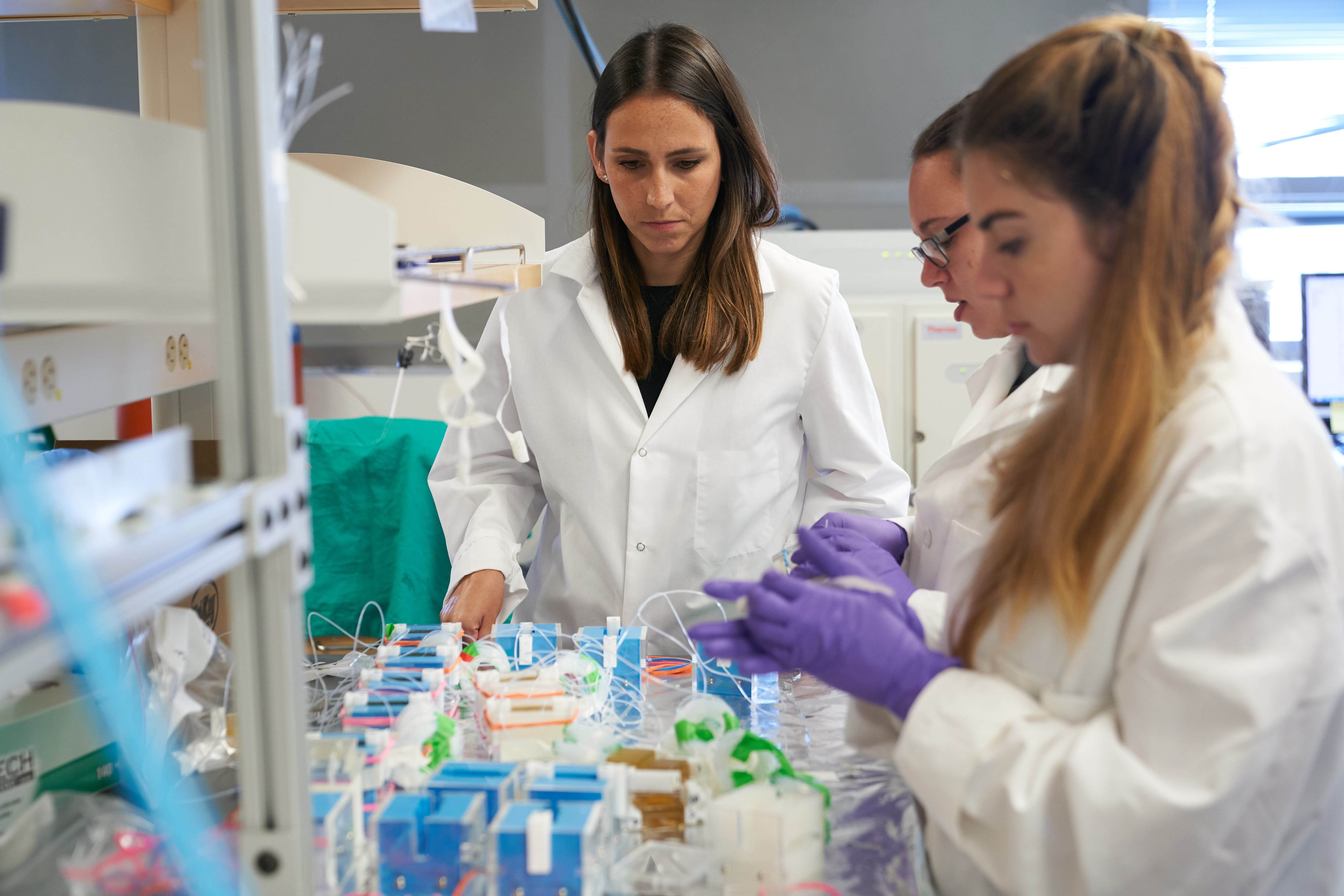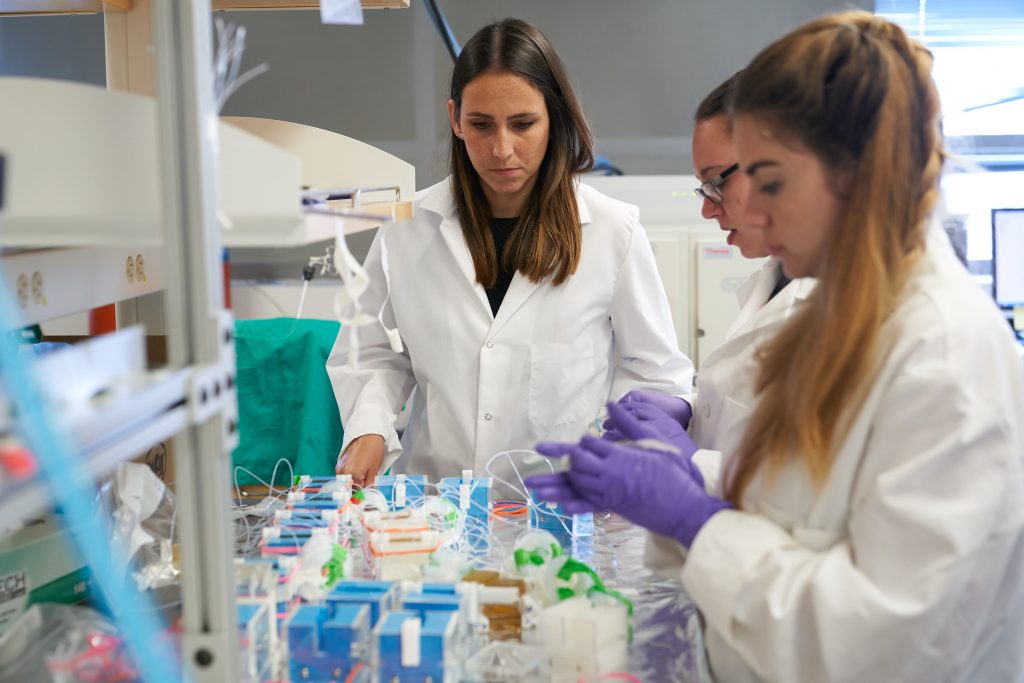Every year, about two dozen extraordinary people receive the MacArthur “Genius” Grant. The $625,000 grant – given out by the John D. Catherine T. MacArthur Foundation over a period of five years with no strings attached – are so-called because there is no application; the foundation chooses to award those who “show exceptional merit and promise for continued and enhanced creative work.” There are no requirements for what the winners must do with the money. This year, 25 people took home the prize, including two Latinas, Natalie Diaz and Livia S. Eberlin.

Diaz, 40, uses poetry to mix “personal, political, and cultural references in works that challenge the systems of belief underlying contemporary American culture.” Her background – she identifies as Mojave and Latina – informs much of her work. Diaz, who was born in the Fort Mojave Indian Village in Needles California, grew up playing basketball. She even attended Old Dominion University, where she received a Bachelor of Arts, on a full athletic scholarship before she wound up playing basketball professionally in Europe and Asia. When she returned, she pursued a Master in Fine Arts at Old Dominion.
Her first book of poem, When My Brother Was an Aztec (Cooper Canyon Press), told stories of her brother’s drug addiction, her childhood in a reservation, economic inequality, and body-image issues. The concept of body is one she comes back to over and over again. “I think I am trying always to return to the body because as an Indigenous person, as a Latina, as a queer woman, I haven’t been given the permission or the space, to be fully in my body,” she told Sampsonia Way. “Things like pleasures, and the autonomy of pleasure, and ecstasy – those things weren’t allowed for us. We weren’t supposed to fulfill those things. So for me, it’s always about trying to come back to the body, trying to say – how can I constantly return to the body, even when it’s uncomfortable, so that I have the possibility of those things? And that is where I am mostly situated right now, just kind of wandering around in the space of my own body.”
Diaz also works to help preserve the Mojave language, which describes as “one of the most important things I’ve done in my life.” She has written down the stories of her elders and is working on ways to make that content accessible.
Livia Schiavinato Eberlin, 32, is an analytical chemist. Born and raised in Campinas in São Paulo, Brazil, her career in science took off during her undergraduate career. In the years since, her work has made a difference in cancer research. She focuses particularly on the innovative ways that doctors can identify cancerous tissue in patients. She created the MacSpec Pen, which helps doctors quickly tell the difference between healthy and cancerous tissues in surgery.
“I feel extremely honored and humbled because this is a very special fellowship that recognizes people for their talent and creativity, not for a specific project or their past work,” Eberlin said, according to the University of Texas at Austin’s newsroom. “They trust your work has and will continue to impact society and I am so thankful for that.”
The Universidade Estadual de Campinas graduate received a Ph.D from Purdue University. From 2012 to 2015, she was a postdoctoral fellow at Stanford University before joining t4he UT Austin faculty in 2016.




